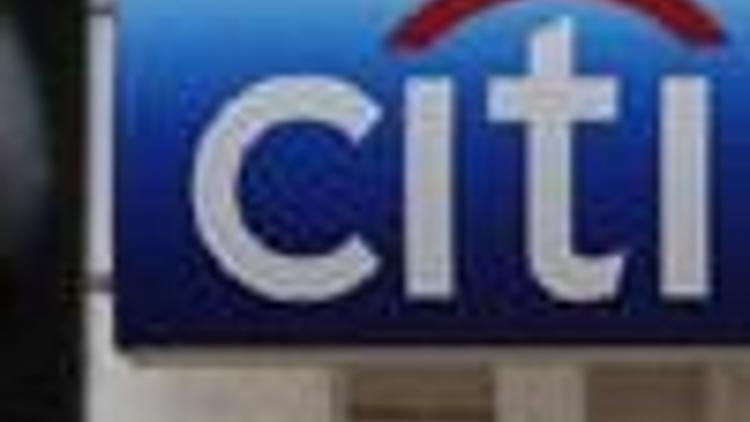Citigroup may be next to seek go't rescue as stocks in free fall
Güncelleme Tarihi:

The U.S. government may step in to rescue Citigroup Inc. after a crisis in confidence erased half the bank’s stock-market value in three days, analysts and economists suggested.
Citigroup’s $2 trillion of assets dwarfs companies such as American International Group Inc. that got support from the
Pressure intensified on Citigroup to sell part or all of itself as its stock fell below $4 a share on Friday and fears escalated about future loan losses.
What investors are worried about is that all the risky debt sitting on Citigroup's balance sheet will eventually turn into losses as the economy worsens and the markets stay turbulent — losses that could be nearly impossible to reverse.
Investors were also fearful that the government might orchestrate a takeover of Citigroup over the weekend that could wipe out common shareholders, Paul Miller, a Friedman Billings Ramsey banking analyst, told the Associated Press.
Treasury Secretary Henry Paulson and Federal Reserve Chairman Ben S. Bernanke may favor a rescue to avoid the chaotic aftermath of Lehman Brothers Holdings Inc.’s bankruptcy in September.
"Citi is in the category of ‘too big to fail," said Michael Holland, chairman and founder of Holland & Co. in
One option is for the Federal Reserve and U.S. Treasury to create a special vehicle to purchase bad assets from Citi.
The government was instrumental in JPMorgan Chase & Co.'s buyout of Bear Stearns and Washington Mutual Inc., deals that left shareholders with little or no payouts.
The Treasury Department, the Federal Reserve and other banking regulators are monitoring the situation, government officials told AP. They spoke on condition of anonymity because of the sensitive nature of the matter.
STOCKS TUMBLE JUST AS LEHMAN
While Citigroup executives say the company has adequate capital and liquidity to ride out the crisis, its tumbling share price may shake the confidence of creditors, clients and rating companies.
A similar scenario played out at Lehman, when Chief Executive Officer Richard Fuld declared the firm was "on the right track" five days before the firm went bankrupt.
In spite of a rally on Wall Street, Citi’s shares on Friday fell 94 cents to $3.77, bringing its losses this month to 72 per cent and giving it a market value of $20.5bn – less than a quarter of rival JPMorgan Chase. The cost of insuring Citi’s debt rose.
Citigroup CEO Vikram Pandit, who took over in December, blamed the share price slump on misinformation and scaremongering by investors, short-sellers and rivals, saying the company was in much better shape now than a few months ago.
He said the bank was working with regulators on a number of issues, a reference to the lobbying by Citi and other banks to reinstate a ban on short-selling.
Pandit and Chief Financial Officer Gary Crittenden, spoke on a worldwide conference call Friday. The call came as Citigroup’s board, led by Chairman Win Bischoff and independent director Richard Parsons, prepared to meet yesterday at the bank’s headquarters in
Pandit and Crittenden also urged employees to get in touch with clients and remind them that the group’s financial position was sound, the wires reported.
In the conference call, Pandit insisted the bank’s underlying business was strong, generating $100bn in annual revenues.
Those revenues, along with plans to reduce Citi’s annual expenses from their current $62bn to $52bn in 2009, would give the bank an added cushion to help it survive an economic downturn, he said, the Financial Times reported.
Once the biggest U.S. bank, with a market value of $274 billion at the end of 2006, Citigroup has now slipped to No. 5 behind Minneapolis-based U.S. Bancorp.
NO. 5 BY VALUE
A plan by 51-year-old Pandit this week to cut costs by shedding 52,000 jobs and an endorsement by billionaire Saudi investor Prince Alwaleed bin Talal failed to assuage shareholders’ concern that bad loans and securities write-downs may extend a yearlong run of net losses totaling $20 billion.
Pandit was appointed last December to succeed Charles O. “Chuck” Prince, who was ousted as mortgage-bond write-downs saddled the bank with a record fourth-quarter loss of almost $10 billion.
Prince was the handpicked successor of former Chairman and CEO Sanford “Sandy” Weill, who built the company through a series of acquisitions over 17 years before stepping down in 2003.
Bischoff, 67, was Citigroup’s top executive in
Bank employees have been telling customers their deposits are safe, and so far corporate clients haven’t moved their money elsewhere, said three people familiar with the matter who declined to be identified because they weren’t authorized to speak publicly about the accounts, the Bloomberg reported.
Crittenden, 50, has told colleagues it would be unwise to make hasty decisions to dispose of good businesses to satisfy investor demands for a show of action, one person familiar with the matter said.

